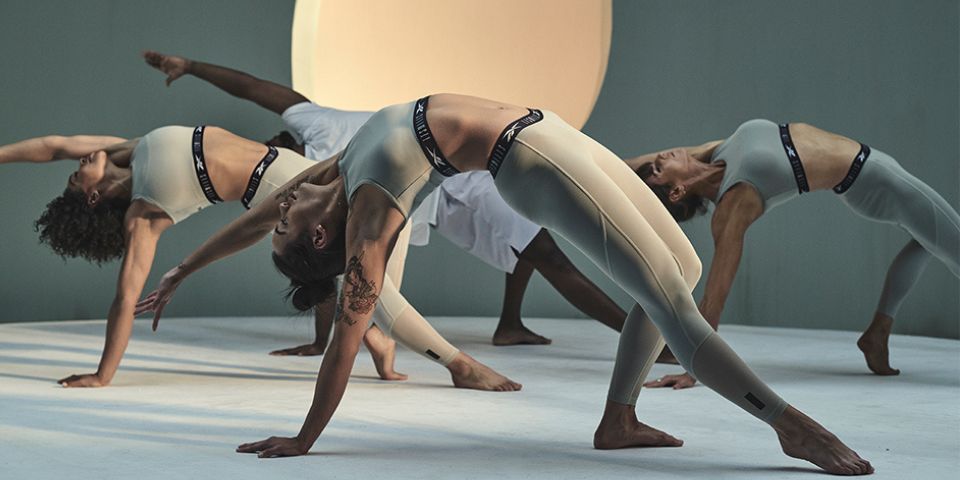Read on and you’ll discover:
- The specific yoga-based session shown to ease anxiety and boost positivity
- How stretching and meditation will improve sleep and recovery
- The positive changes you can expect in just two weeks
- The importance of measuring heart rate variability (HRV) levels.
When COVID-19 started spreading across the globe, it wasn't just germs endangering our health. The pandemic also infiltrated society with new levels of stress and anxiety, and no one was immune. Early on, a multitude of Chinese studies found that people were experiencing high symptoms of stress, anxiety, and post-traumatic stress disorder. One study showed up to half were dealing with serious signs of depression, while another said 35 per cent were struggling with anxiety. Now, similar stats are showing up all over the planet.
If you're one of the many feeling strained with the mental burden that 2020 has laid on us, nurturing your mental health with physical activity will pay dividends. There is plenty of evidence that you can combat anxiety with exercise and even specific types of training that will help ease negativity.
And now, a new study reveals a pre-bedtime stretching and meditation session can improve sleep, boost positive feelings, and enhance recovery from mental as well as physical stress.
A pre-bedtime stretching and meditation session that can improve sleep, boost positive feelings, and enhance recovery from mental as well as physical stress.
The benefits of this pre-slumber stretching became apparent when study participants completed a 20 to 30-minute sequence of stretches and 10-minute meditation based on the BODYBALANCE® yoga program. They did this three evenings a week for just two weeks. Researchers measured a range of responses, most specifically the participant's heart rate variability (HRV), which is a measure of your nervous system recovery patterns. This was combined with survey data related to life satisfaction, feelings, and sleep quality.
When compared with the control group, those who did the evening yoga reported considerable changes across every variable – improved HRV, sleep quality, confidence, motivation, and reduced anxiety, tension, and sadness.
Lead Researcher, Dr Jinger Gottschall says it provides evidence of the calming and relaxing effect that comes from a stretching and mindfulness session in the evening. “It drives many valuable physical and mental health benefits, making it a very useful recovery protocol. Participants felt more positive, confident, and motivated,” she says.
Just six sessions can increase Heart Rate Variability (HRV) enough to gain the following key benefits:
- 15 per cent improved sleep quality
- 39 per cent increased positive feelings relating to confidence
- 39 per cent decreased feelings of sadness and negativity
- 29 per cent increased motivation
- 26 per cent decreased negative emotions (anxiety and tension)
- 18 per cent increased satisfaction with daily life.
Gottschall explains the significance of doing this session in the evening is that it works by naturally creating a deep sense of calm at the end of the day, which leads to quality sleep and a more positive outlook in the future.
Calmness and positivity aren’t the only perks, there are many other psychological and physiological health benefits associated with yoga too.
Les Mills Head of Research Bryce Hastings says these findings are good news for anyone who needs some recovery from the mental and physical stresses of modern life. “We need to understand that we need recovery from life, not just exercise. This study demonstrates that we can enhance recovery from everyday stress and exhaustion through simple and targeted movement and mindfulness training.”
He adds; “The increased popularity of ‘recovery’ is often misdirected; it assumes that only athletes and high-performance individuals need recovery. The collective trauma experienced by our population in 2020, has enabled us to understand that increasing positive emotional, mental and physiological transformation can occur with small but consistent changes, when they’re accessible to everyone.”
Best of all, “You don’t need to be a particular level of fitness to start BODYBALANCE and by doing it on a regular basis, you can start enjoying the same benefits the study participants gained,” says Gottschall.
Why did the researchers focus on HRV – what makes it so important?
Heart Rate Variability (HRV) is a measure of the variation in time between each of our heartbeats. It is the tiny difference in the length of these intervals that are a sign of a healthy cardiovascular system and that a person is in an optimal state of recovery. Surprisingly, the more variability we have between beats, the better! The higher the HRV, the more likely we are to be able to shift from being stressed to being relaxed and, therefore, better equipped to cope with the pressures of daily life. Studies show that low HRV is correlated with anxiety and an increased risk of cardiovascular disease.
In a physiological sense, variation between heartbeats is controlled by a part of the nervous system called the autonomic nervous system (ANS). There are two large parts to this system, the sympathetic and the parasympathetic nervous systems – also commonly referred to as the excitatory (“flight or fight”) and relaxation (“rest and digest”) components respectively.
Measuring HRV levels is a non-invasive way to identify imbalances between the two systems, which control vital things like heart rate, blood pressure, breathing, and digestion. The measurements also provide insights into how our nervous system is reacting to our environment, emotions, thoughts, and feelings.
Now, thanks to this new study, there is evidence that yoga with a focus on stretching and breath in the evening will stimulate a high HRV and help reduce the stresses of modern life.
You can try BODYBALANCE® on LES MILLS On Demand or check out FREE LES MILLS MINDFULNESS sessions here.

